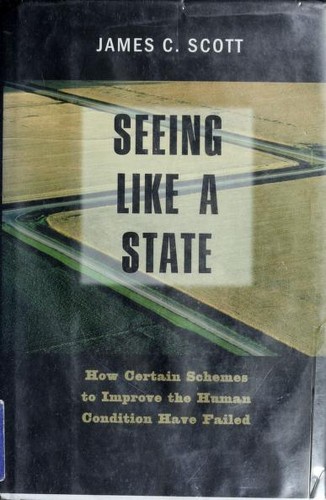Leth reviewed Seeing Like a State by James C. Scott (Yale Agrarian Studies)
Good Anti-Nerd Datapoints
4 stars
So what you're telling me is that the scourge of society is a bunch of nerds trying to design away all of life's problems and their solutions always seem to involve lower classes working to solve the politburo's problems? And their plans fuck up the environment and destroy community knowledge of how to, y'know, live self-sufficiently and otherwise? And that by now many of us discontents are kinda just doomed because the network we need to survive is actively recuperated and destroyed by the state?
Fucking nerds, I swear to God. The meek will destroy the Earth.
The collection of historical narratives was quite interesting, and the overarching message was essentially archetypical. It's a basic point extremely well-explained even if I simply could not retain anything in my head from the final part. Metis entered my mind. I got that. And then I seemed physically incapable of maintaining …
So what you're telling me is that the scourge of society is a bunch of nerds trying to design away all of life's problems and their solutions always seem to involve lower classes working to solve the politburo's problems? And their plans fuck up the environment and destroy community knowledge of how to, y'know, live self-sufficiently and otherwise? And that by now many of us discontents are kinda just doomed because the network we need to survive is actively recuperated and destroyed by the state?
Fucking nerds, I swear to God. The meek will destroy the Earth.
The collection of historical narratives was quite interesting, and the overarching message was essentially archetypical. It's a basic point extremely well-explained even if I simply could not retain anything in my head from the final part. Metis entered my mind. I got that. And then I seemed physically incapable of maintaining my attention.


